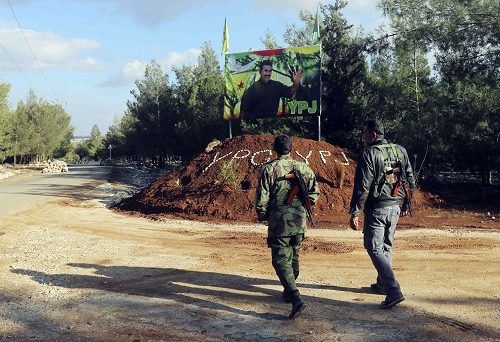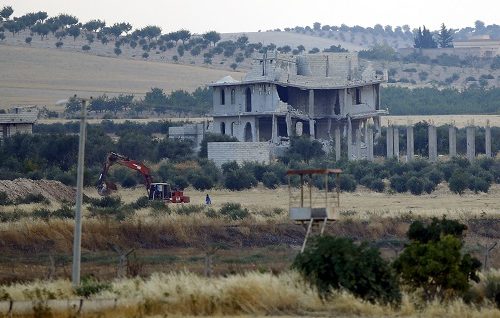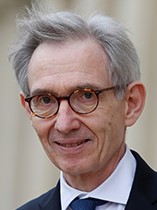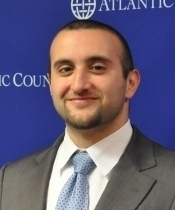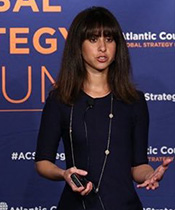Trump withdraws US troops from northern Syria
Key Points
- Turkey’s prospective military move places efforts to finish off ISIS in northeastern Syria in jeopardy
- The YPG may need to seek some out a negotiated surrender to the regime
- New waves of thousands of displaced Syrians is likely with disastrous results
An October 6 phone call between US President Donald J. Trump and Turkish President Recep Tayyip Erdoğan resulted in a partial withdrawal of US troops from northern Syria and Trump’s endorsement of Turkish plans to send their own military forces into the region. The Turkish operation is meant to remove elements of the Kurdish forces of the Syrian Democratic Forces (SDF), known for their efforts in fighting the Islamic State of Iraq and al-Sham (ISIS) in cooperation with the US-led coalition, away from the Turkish-Syrian border.
Turkey considers the People’s Protection Units (YPG)—embedded within the SDF—as an extension of the Kurdistan Workers’ Party, a terrorist organization that Turkey has fought against for the past three decades. A briefing with reporters indicates that only a handful of US troops left just two outposts in northern Syria as of October 7 and mainly to remove them from the line of fire. US Department of State officials stated the US position has not changed, but will also not be involved in the Turkish operation.
Republican senator Lindsey Graham (R-SC) tweeted that he is poised to introduce a bipartisan sanctions bill against Turkey should they invade Syria and attack Kurdish forces. After the Graham threat, President Trump tweeted possible US action in retaliation if Turkey takes action Washington opposes. Additionally, Republican legislators Adam Kinzinger (R-IL), Marco Rubio (R-FL), and former US Ambassador to the United Nations, Nikki Haley, have come out strongly against the move by President Trump, calling it a “grave mistake” and a “catastrophe.”
Atlantic Council experts react to the announcement of US troops withdrawing from Syria.
Ambassador Frederic C. Hof is a distinguished fellow at the Rafik Hariri Center for the Middle East.
“The White House has reportedly decided to withdraw American troops from at least part of northeastern Syria in the wake of a telephone conversation between the Turkish and American presidents. As was the case following a similar conversation last December, a major decision by President Donald Trump seems to have been made without the benefit of a thorough interagency review. Turkey’s prospective military move places in jeopardy efforts to finish off ISIS in northeastern Syria.
Turkey’s reported desire to resettle upwards of two-million Syrian refugees in a twenty-mile deep “safe zone” could also require a significant displacement of existing Syrian Kurdish populations. If it does, then Kurdish militia forces might well resist the incursion. And if they do, the Turkish Army should expect something more complicated than a parade. Sadly, Ankara would likely blame Washington for any casualties incurred on Syrian territory.
If American forces are withdrawn entirely from northeastern Syria, the winners would be ISIS, the Assad regime, Russia, and Iran. If they stay in areas south of the prospective Turkish incursion they may have difficulty retaining the cooperation of predominantly Kurdish partner forces to defeat an ISIS insurgency.
A worst-case outcome would reflect a significant failure of US-Turkish diplomacy and the final blow to a Syria policy that has—more often than not since 2011—reflected American weakness. A five-year investment in the defeat of ISIS is now very much in jeopardy. And a 2014 decision by Washington to partner with an anti-Turkish Kurdish force to fight ISIS (instead of finishing the terrorists quickly with a professional ground combat force coalition of the willing) seems now to be paying its poisoned dividend.”
Ambassador Michel Duclos is a nonresident senior fellow at the Rafik Hariri Center for the Middle East.
“Seen from Paris, Trump’s decision is very regrettable. One issue is of course the fate of foreign fighters who are detained by the YPG. Major camps are not in the realm of the Turkish potential offensive—in which case the Turks will not be in charge of them—but those foreign jihadists are going to become a bargaining chip in the hands of various local actors. Other issues are still more serious: first of all, the diminishing value of US security commitments, the new phase of violence and uncertainties to be expected in northern Syria, the distinct likelihood that Russia and Assad—plus Iran—are going to use the new context to their advantage.
The YPG has no other choice now but to seek some kind of negotiated surrender to the regime under a Russian umbrella. Russia will once more be the partner of choice for Erdoğan. There could also be new waves of displacement with thousands of Syrians forced by Turkey to head towards the northeast while the Syrian regime will push Syrians from Idlib towards Turkey. What an ugly situation. As far as the European governments are concerned, they will have to review their positions on their military presence and on the foreign jihadists—as well as prepare themselves for a new political game with Turkey and Russia.”
Faysal Itani is a nonresident senior fellow for the at the Rafik Hariri Center for the Middle East.
“President Trump will be criticized for his unpredictability and for essentially sabotaging his own team’s efforts to salvage the Syria situation. That is fair, but ignores the fact that the grounds for this were laid by the previous administration.
Its decision to incubate a statelet run by the YPG, an offshoot of Turkey’s mortal enemies the PKK, to defeat ISIS with minimal US casualties was always problematic. It was never clear that this could be reconciled with Turkish strategic interests that are ultimately simply more important. Repeated promises by US political and military officials to ‘stand by the Kurds’ were irresponsible in light of the president’s clear ambivalence toward the mission.
It would have been more prudent to defeat ISIS by building durable local and regional coalitions and playing a more direct role, rather than depending solely on one non-state actor surrounded by enemies. Of course, that would have meant higher risks and deeper involvement in the Syrian conflict, but Trump was not the only US president to have avoided those at all costs.”
Borzou Daragahi is a journalist and a nonresident senior fellow with the Atlantic Council’s Middle East Programs.
“Turkey is confident that it has developed a winning formula for administering Syrian lands under its purview. Indeed, by distributing most managerial duties to local partners from the Free Syrian Army and partnering each area under its control with Turkish municipalities, Ankara has come up with an innovative formula that keeps the focus of governance on day-to-day quality-of-life issues.
Success in northeast Syria would give Turkey not only political and social breathing space, by creating an enclave for its own substantial Syrian refugee population, but also leverage over both the Syrian regime and its Iranian and Russian patrons as they sketch the future of the country. But the risks of a Kurdish insurgency are high, potentially waylaying any such plans. The incursion could also put Turkey on a confrontational path with ISIS remnants.”
Jasmine M. El-Gamal is a nonresident senior fellow with the Middle East program at the Atlantic Council.
“This announcement is just the latest in a long string of incoherent policies on Syria, based on wishful thinking and a complete detachment from the reality on the ground. This will certainly come back to haunt us.
If this US withdrawal actually comes to fruition, the scenario the Kurds face is one where they are simultaneously coping with the threat from Turkey and trying to hold together a region that is simmering with discontent, a lack of opportunity, and a resurgent terrorist presence. It is the worst of all possible scenarios.
The Kurds are justified in feeling abandoned or even betrayed, not necessarily for the withdrawal in itself, but in the way it is being announced and conducted: ad-hoc, haphazard, and void of any mechanism to ensure a sustainable way forward in the region. Hopefully their fears of abandonment are not realized, as there is still time for the president to (once again) walk back his statements.”
Reema Hibrawi is an associate director at the Rafik Hariri Center for the Middle East and the editor for MENASource and SyriaSource.
Related Reads
Image: US and Turkish military forces conduct a joint ground patrol inside the security mechanism area in northeast, Syria, October 4, 2019. Picture taken October 4, 2019. U.S. Army/Staff Sgt. Andrew Goedl/Handout via REUTERS.
